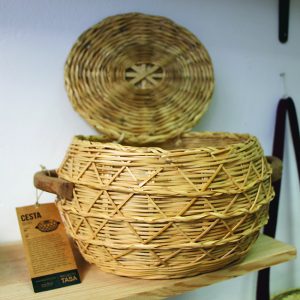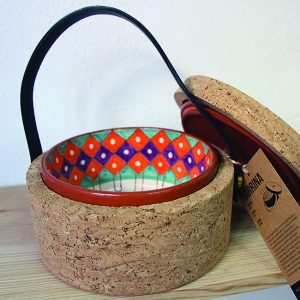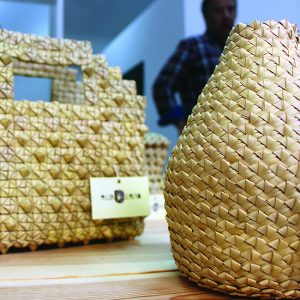Clay, palm, reed, wicker, cork, wood and flax, words of the earth which speak of the roots of a people and which can transform lives. They increase the value of our lives. The arts are dying, but there are still people who work together so that this heart continues to beat. This is what is behind the TASA Project (Ancestral Techniques, Current Solutions)!
Designers, marketeers and artisans work for a common good: handicrafts. But the piece of craftwork is far removed from its ornamental or mass-produced role and is transformed into an aesthetically pleasing object for everyday use.
Being an artisan can be a profession with a future. It is ecological, cultural, sentimental and creative. “We have artisans who use their grandparents’ baskets. A piece of handicraft can last a lifetime!”, says Joao Ministro, who is responsible for the TASA Project.
“The 47 artisans working with us have an average age of 63. In some arts and crafts, the average age is around 72, while in others there is only one person left,” he says. We will only be able to save and renew these arts if we make them sustainable. This means making handicraft a profession with a future. This is the great aim of TASA. Innovation, design and creativity are tools which give new value and quality to craftwork. We will not be able to attract anyone to work with crafts if they will only earn a euro an hour,” he warns.
Young people need to be trained. “ The art of tinsmithery, which has almost died out, has been learned by a young man from Monchique who took a course with us and is now working as a tinsmith,” he cites as an example of what is intended with a five-month intensive course that TASA is offering in Loulé, until June. The programme “Artisans of the 21st Century” involves six young people who come from all over the country to learn “The art of palm basketry” with Antonio Rodriguez, from Cadiz, who has a body of work which is “impressive for its originality and quality”. Besides being a researcher, he is a master of the art of palm basketry and seeks, through new techniques and design, to give a more contemporary feel to his pieces.



Working together with schools is another element of the work. João Ministro recalls the challenge issued to the students at the International College of Vilamoura to design a pattern, which today you can see decorating one of the pieces displayed in the shop: the pot called a “tarrina”. Also the work developed last year with 80 students at the tinsmithery workshop in Messines.
TASA makes a living from the sale of products (both inside and outside of Portugal), from creative experiences, educational programs and consultations.
The project started in 2010, through the Algarve Regional Coordination and Development Commission (CCDR), and since 2013 it has been managed by Proactivetur–Responsible Tourism (at no cost to the promoter).
In 2015 TASA won the creativity prize in the SHAPES project managed in Portugal by the University of the Algarve through its Department for Entrepreneurship and Technology Transfer (CRIA), which has led to TASA developing valuable contacts for exporting to three European countries: France, Italy and Spain.
It owns shops in the Algarve, Porto and Lisbon, and was recently nominated for the Mercury Prize awarded by the National Business Association, in the category of “Shops with Tradition”.
 Eco123 Revista da Economia e Ecologia
Eco123 Revista da Economia e Ecologia

